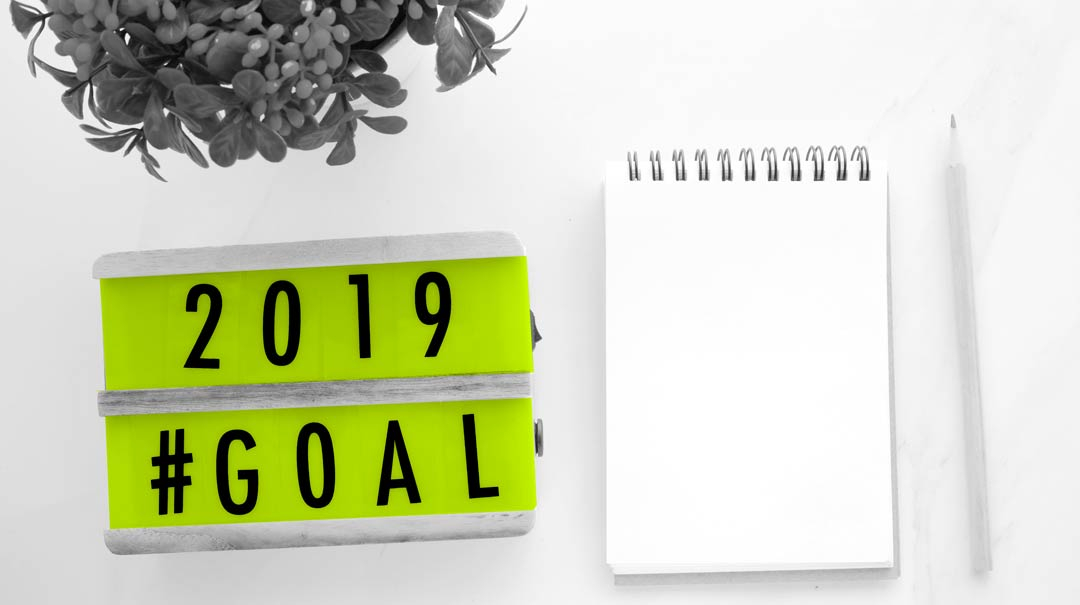3 NEW YEAR'S RESOLUTIONS FOR 2019
JANUARY 11, 2019

How have your first 11 days of 2019 been going? Have you managed to cross out a lot of items on your to-do lists? Or are you still a bit stuck on a Holiday coma, unsure of how to start the New Year?
Since January is usually the time people like to “restart” on many things and create resolutions for the year ahead, let’s take a bit of time to go through three simple resolutions for work that you can do this year.
Stand up from your desk and move around
A new year usually means new health goals as well, and simply standing up from your desk at work to move around can go a long way. There are numerous sources that refer to sitting as the new smoking – and it’s for good reason.WebMD shares data that notes how sitting all day raises the risk of heart disease, diabetes, stroke, high blood pressure, and high cholesterol. In addition, multiple studies conducted from institutions like Weill Cornell Medical Center, University of Michigan, and Colombia University Medical Center have discussed the link of prolonged sitting with an increased risk of obesity and even depression.
Gavin Bradley, director of Active Working (an international group aimed at reducing excessive sitting) gives some pointers on how to move more at work.
“Taking your calls standing. Walking around. Pacing. Holding standing meetings. Walking meetings. Walking over to a colleague’s desk instead of sending an e-mail. Using the stairs instead of the elevator. Taking a lunch break. Simple stuff.”
He also explains what happens when you stay seated and how it affects your metabolism.
“Metabolism slows down 90 percent after 30 minutes of sitting. The enzymes that move the bad fat from your arteries to your muscles, where it can get burned off, slow down. The muscles in your lower body are turned off. And after two hours, good cholesterol drops 20 percent. Just getting up for five minutes is going to get things going again."
To get things moving along, you can start with something as simple as leaving your desk for lunch every day. But ultimately, the goal is to move around at least every 30 minutes.
QUICK POINTS AND IDEAS:
- Prolonged sitting increases the risk of heart disease, diabetes, stroke, high blood pressure, and high cholesterol, obesity, and depression
- Take your phone calls standing up
- Stand up when you hold meetings
- Walk to a colleague’s desk instead of emailing them
- Use the stairs instead of the elevator (especially if you're only climbing up a few)
- Walk across the street to have lunch instead of having food delivered
- Take notes on a whiteboard while standing
- If you have a standing desk in your office, use it
Plan ahead and execute step by step
Setting up a plan for your career will help you stay organized throughout the year, and will give you something to work for and try to achieve.The 1 Year Plan
You can start by setting your career goal for the year, giving you an overview of everything you need to do or want to accomplish. Start with one. What is the ONE thing you want to achieve most this year? Is it a promotion? Or to complete a specific project? Maybe it's to learn a new skill?
Whatever it is, write it down, and create an action plan with the steps you need to take in order to achieve that goal. If one year seems too long or you want to break it down further, you can add a quarterly plan or monthly plan as well.
Daily/Weekly Planning
Another cool thing you can do is create a “Focus Plan”. This specific plan comes from the National Bestseller book, “The Way of the Seal: Think Like an Elite Warrior to Lead and Succeed”, written by Mark Divine who is a retired Commander of the U.S. Navy SEALs. He mentions a few points to write down on your daily/weekly plan that can help you get organized and get things done. Some are:
- What is the most important thing to achieve this day and/or week?
- What are other "priority tasks" to complete
- What projects do you have, and what are the steps to complete them (aim to complete one step minimum per day)
- Who are the people you need to email/call?
Keep track of your achievements
Keeping track of your achievements throughout the year can help you feel accomplished, and motivated to keep up the good work. It can also help you see where you’re falling behind and what you may need to work harder on.It will help when performance reviews come along because you have numbers or specific examples that you can quickly refer to. This is also helpful when you feel like it's the time to ask for a raise. It also becomes easier to update your resume because you already have a reference for all the things you've accomplished.
Some companies use KPIs (Key Performance Indicators) to track progress and achievements. KPIs are extremely measurable. This helps because it gives you a goal to work for. You also see numerical progress of the things you need to get done. If your company doesn’t do this, you can always try it out yourself and see if it helps you.
Some things you can track:
- Goals you’ve reached – track with hard data and analytics
- Difficult situations with co-workers you’ve overcome and how
- Projects/tasks completed on time and how
- Times you’ve overcome pressure at work
- Winning awards, completing seminars, gaining certifications, receiving recognition from clubs or organizations
How to track achievements:
- Keep a journal to track them
- Record voice memos
- Note it down on your phone or on apps
- Write them on your desk calendar at work (or any calendar you have)
- Jot them down on your planners
- Add it to your resume/online profiles
Sample of what to note down:
Projects/assignments I completed this week
Challenges I overcame
One thing to accomplish next week
Projects/assignments I completed this week
- Name/description of project
- Dates/how long I've been working on it
- Why it's important to the team/company/myself
Challenges I overcame
One thing to accomplish next week
So there you have it - three simple things to add to your New Year's Resolutions for work. You can always add more, but starting with just three is a good way to start slowly and not get too overwhelmed.
JANUARY 11, 2019



